Who is Mat Meyer?
Chef Mat Meyer is the head chef and founder of Ansley Table, a private dining and catering service. His career went from living in a homeless shelter to owning a business and serving major clients like Amazon. Chef Mat is known for his signature style, mixing classic American cuisine with an Asian flair. In our conversation, he shares his insights on hiring, overcoming challenges, and building a successful culinary career from the ground up.
You have an inspiring career story. Could you tell us about it?
Absolutely. My journey began in a homeless shelter, living there for two years with my two children. During that time, I juggled school and part-time jobs that barely paid enough to feed my kids, often going without food myself.
I went to culinary school and struggled, taking home just $10 an hour from a part-time job. I fed my children, often skipping meals for myself. Eventually, I worked my way up into the restaurant industry, learning from some high-profile chefs.
Ultimately, two years ago I got tired of making money for everybody else. I decided to strike out on my own and started Ansley Table, and we have been hitting the floor running ever since. We now cater to prominent clients like Todd Davis, the founder of LifeLock, and companies like Amazon.
When I was homeless, I lived in a community called the House of Refuge, which helps families get back on their feet. Recently, I became a board member of the organization. I can use my experiences from living there to help current and future residents live better lives, that’s my way of giving back.
Why did you choose culinary industry cooking when things were tough?
Well, it was either the culinary or the music industry at that time. I figured, in the kitchen I was going to make the most and stay in one place and provide a stable environment for my kids. It seemed more beneficial compared to the constant travel required in the music industry.
Do you think real experience is more valuable than culinary school education?
To set a decent foundation, you want to go to culinary school.
Culinary school has a bad reputation these days because everybody who graduates from it thinks that they are already a chef. In reality, culinary school teaches you only the basics: sauces, cuts, etc.
However, the hands-on experience is what opens the doors. Once you get into the industry, you're going to learn tailored techniques specific to each kitchen and chef, as opposed to how some guy does it in a classroom, where everybody must do the same thing.
Is it important to have mentors in the culinary career?
Absolutely, it’s a great thing for anybody in the industry to shadow your mentor and learn everything you possibly can. I’ve had plenty of mentors, but I’d narrow it down to two chefs. I worked under celebrity chef Beau MacMillan, who was on Iron Chef, and who beat Bobby Flay in 2006. But then later in my career, I worked under a restaurateur Adam Allison, who is the Chopped Champion. We became good friends and do a lot of charity work together now.
I also see myself as a mentor now, I do what I can to give back, and my team appreciates it. We have a student who’s pulling his own weight but refuses to be paid because he values the experience more. I don't like not paying him, I even reached out to his parents, but he’s just firm on that.
What’s your advice for someone at the beginning of their culinary career?
Remember, there’s always something else to learn.
I always say that a cookbook is never finished. The culinary field constantly changes and evolves, so you must grow with it, be flexible and adaptable.
What is the biggest challenge in the industry now?
I’ve been working in this field for around fifteen years. The biggest change has come after COVID. Many cooks stepped away from the kitchen, became private chefs or left the industry altogether. Newcomers perceive their jobs very differently now. Everyone wants top dollar for low skill sets, they don't understand the value of experience. People just assume they're going to get $25 an hour when they start.
So, there's a definite shortage of skilled cooks and just all-around restaurant employees. The industry is suffering.
That’s why you must hold on to your cooks! If you could find a solid cook that isn't draining you, hold on to them, train them, teach them up, and then push them out to go do something bigger and better. Hopefully, you'll have somebody else that comes along to replace them.
Why did you start your own business?
I thrive on creativity and freedom, and the restaurant I worked at did not welcome creativity. It was a stable job, I stayed there for a few years, and it helped me get through COVID, which I appreciated. But I always have to do something new and push the limits, and that's when I decided to start my own business and really push the boundaries of what I'm capable of.
Do you find owning a business harder than working in the kitchen?
The main difference is that in a commercial kitchen or restaurant, everything is readily available. You show up, maybe bring your knife kit, set it up, and grab what you need from the walk-in cooler.
As a private chef or caterer, I'm always loading and unloading my car, shopping for the best deals while maintaining quality. It involves a lot of work before even stepping into a dinner location. I might spend 4 to 5 hours prepping for what appears to be just a 3 to 5-hour dinner, so it turns into a 10-hour working day.
But it’s a way more creative process. I can change the menu for every single dinner I prepare, unlike a restaurant where the menu stays the same until the seasonal change.
How do you approach hiring for the Ansley Table team?
I rely on reputation and don't really hire people I don't know. One of my three team members now is my son, who is 16 and handles most of the basic tasks like prepping, washing dishes, etc. Then there's Emily, who does everything from setting plates to cooking. And there's Josh, who operates at my level. I've known him for about seven years, and he is deeply involved in menu writing, recipes, execution, and shopping.
When trying out a new cook, I let them shadow me. I allow them to get comfortable, and if they want to take on a task independently, I support them. I watch how they handle it, their perception, listening skills. If they do well, I keep them on and train them even more.
What are the most important skills your team must have?
Here are my top five:
- Experience in restaurants is essential. If they know how to operate in a kitchen, I can trust them to be on their own.
- Good people skills. You must know how to read the room, when to crack and not crack a dirty joke, and behave appropriately in different situations.
- It may seem obvious, but presentability is key; team members should look professional and dress appropriately.
- Strong culinary skills, such as proper cutting techniques, knowing how to cook fish, or to achieve the desired steak temperature.
- Time management.
How do you keep your team motivated, given that people in the culinary world work when others are off?
Usually, they don't mind because they're already used to the schedule, working late hours and early mornings. Treating your team fairly and paying a decent wage always helps. I pay the cooks $30 an hour, and they keep 100% of any tips from clients. But I think a big part of keeping morale is allowing your team to be creative.
The industry is known for being tough on people. Has it changed lately?
It hasn't really changed. There are still high expectations—some are possible, while others aren't. You're in a high-stress environment where things can go wrong. You're dealing with different personalities. It's usually a tough place to be, and you must figure out how to adapt to the kitchen.
What would you say was the biggest challenge when you started your own catering service?
For me, it was getting my name out there, trusting that people would rely on me to provide the service, and having faith they would follow through. Creating my reputation and being recognized was the struggle in the first six months.
You can’t just be a great chef anymore. You need to self-market and self-advertise, have a TV show or an Instagram with many followers.
I'm always on social media, always posting, and giving promotional deals to attract people. It's tedious, but it works and eventually pays off. People can see what you're doing, your menus, your plating styles. If they follow your personal page rather than your business page, they also see that you're a down-to-earth person with kids just trying to get ahead in life.
Do you plan to expand your business, and hire more people?
Yes, I'd love that. Ideally, I'd still do dinners but not as intensely as now. I'd have staff to execute events, paying them annual salaries, with a commercial kitchen and walk-ins available. This would allow me to take vacations with my family, knowing the team is working. For now, with our reputation, I'm comfortable with our small team of 3-4 people. We're doing well and maintaining our good standing.
Many chefs and restaurateurs struggle with delegating tasks. Do you feel the same?
It depends on the person and the day. If a client specifically requests my presence, I'll be there. When having multiple events on the same day, delegating becomes necessary. As long as the final result meets the menu's standards, I'm happy with it.
I work closely with my friend Derek Upton. I can trust him with a menu and allow his creative interpretation. I don’t often hear this approach, but I thrive on others' success as well as my own. Everyone on the team needs to enjoy what they're doing and express their style, because customers feel that.
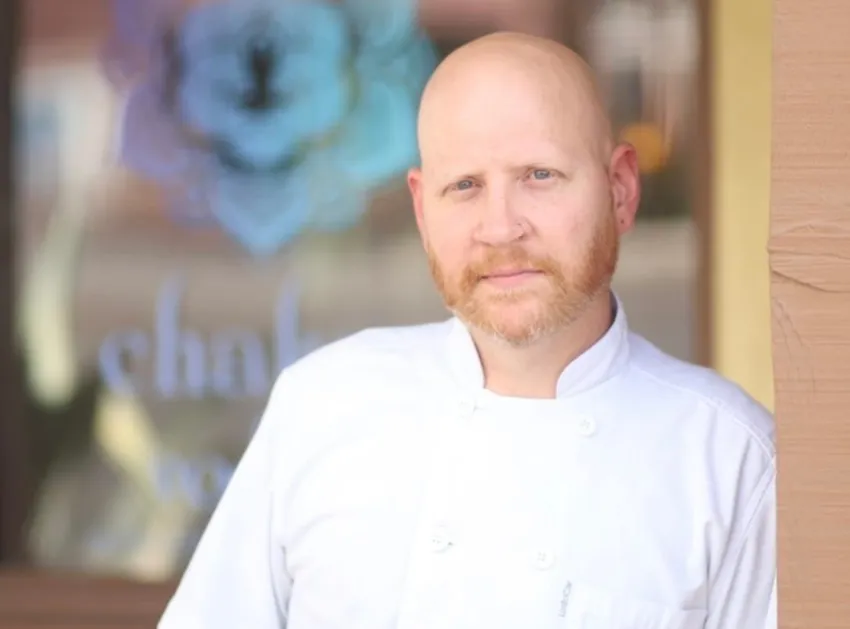

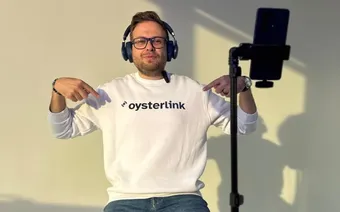
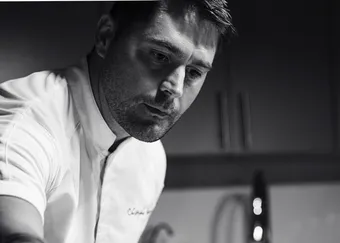
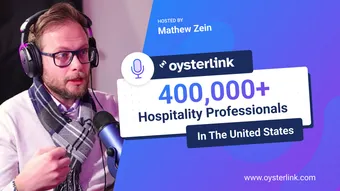
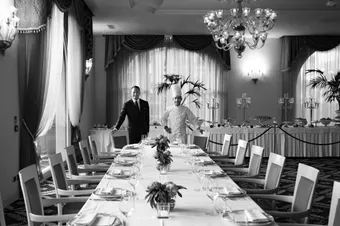
Loading comments...